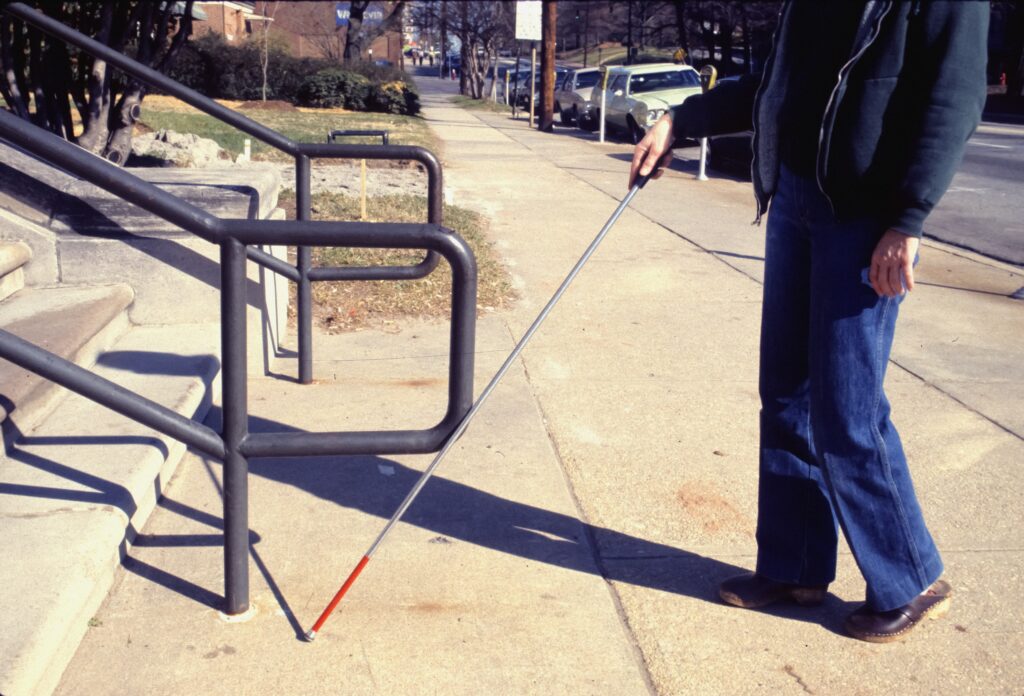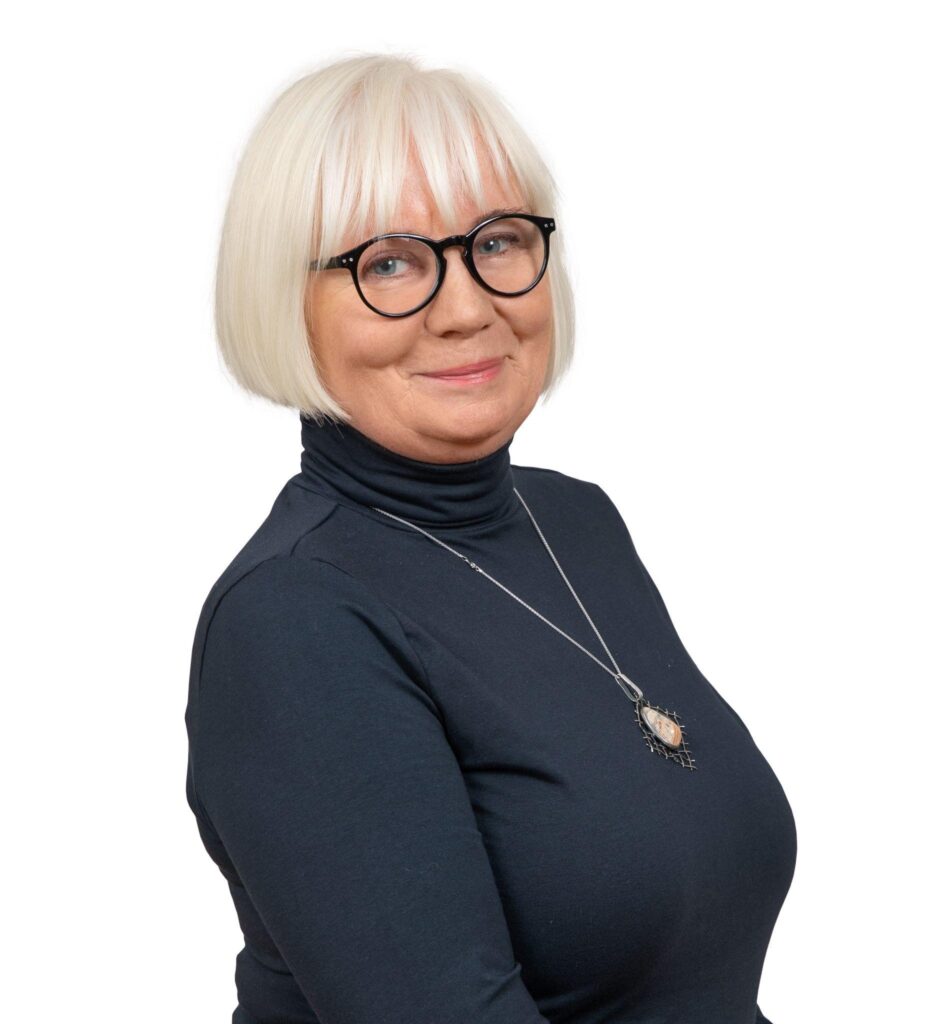The right path is the Nordic approach to deafblindness
2022/12/28

Dalia Taurienė is a typhlo-educator at the Lithuanian Center for the Education of the Blind and Visually Impaired working with visually impaired and deafblind children. She is also currently teaching a subject on Inclusive Education for Master’s studies students at Vytautas Magnus University (VMU). The field-professional tries to implement a Nordic approach to congenital Deafblindness in Lithuania that ensures equal educational services for children with special needs. Dalia gained all the knowledge not only through her own constant effort alone. She also benefited greatly from the cooperation between the Nordic and Baltic countries on deafblindness within the effort of the Nordic Council of Ministers Office in Lithuania.
It has to be teamwork
Dalia Taurienė focuses on deafblindness as the least understood disability in Lithuania.
“This is the most severe disability. It is very scary when a person can hardly hear and see. Children with such special needs cannot do without the help of the others. But helping them doesn’t have to be a one-man job,” says Dalia.
Recalling the good examples from the Nordic countries, she says that all professionals, parents and teachers need to work together in order to help the deafblind.
“In the Nordic countries, more than one expert has a say in what needs to be done. They all are equal experts. I really enjoyed that equality and lateral communication. After all, that child needs to be understood and that has to be done in a normal, natural, human way showing love and respect, and not in a medical-technical manner,” says Dalia.
Visits to the Nordic countries broadened the awareness
Dalia, who has maintained amicable relations with the Nordic countries since 1992, has gained most of her experience in long-term projects in Denmark and Norway. The professional in her field admits that the Soviet-era approach to disability played a major part in the lack of a deafblindness-friendly system. She makes no secret of the fact that the first visits abroad have greatly expanded her own awareness too.
Dalia is now taking a Scandinavian approach to deafblindness which, she says, begins as early as the assessment stage: it must be more than a medical diagnosis only.

“The most important thing is to get to know the person and then help them. In Lithuania, the approach to children with disabilities is still very medical. A child with special needs is still regarded in the light of one or another disorder only which is defined by a code (in hospitals) or by a certain classification category (in educational system). You get a disease code and that’s it,” notes the professional typhlo-educator.
According to D. Taurienė, the Nordic Approach to Deafblindness seminar held in September 2021 made a great contribution to the formation of a different way of thinking in the approach to deafblindness. The event was organised by the Nordic Council of Ministers Office in Lithuania and the Department of Deafblindness of the Nordic Welfare Center together with the National Education Agency and the Lithuanian Center for the Education of the Blind and Visually Impaired.
According to Dalia, Lithuanian psychologists only assess the intellectual abilities of deafblind children. However, in the Nordic countries, it is not unusual for a psychologist helping such children to act as a bridge to understanding what a particular movement or behaviour of a child means.
“When you are with these children, you have to be with them with all your heart, you have to step into their lives. When a person is born, the two senses that are the most important are sight and hearing. When they are both impaired, it affects all aspects of life, including communication with the family members,” says the typhlo-educator.
Calls for more focus on research
Dalia does not hide that she is especially saddened by the academic approach to the mentioned disabilities in Lithuania.
“Visual impairment is still not an subject of research. Of course, this may be due to the small number of such children and teenagers. However, such situation may not prevent a deeper understanding of this complex disability. In addition, the science of deafblindness has provided a great deal of knowledge for the overall understanding of education in general. In other words, by researching the deafblind, we get to know all people better,” notes the professional typhlo-educator.
Knowing that there are only few deafblind people in every society, Nordic countries are tackling this by joining wider cross-border networks.
“I am very impressed with the ability of the Scandinavian countries to cooperate with each other. As early as 1998, when visiting the Nordic Staff Training Centre for Deafblind Services in Dronningborg, Denmark, I saw how important it is for professionals from different countries to work together and to share available scientific data. You can achieve much more by working together,” is convinced Dalia.